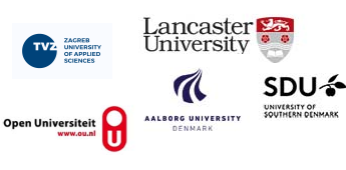

Teachers’ beliefs about professional development and the use of collaborative online tools in higher educational settings
Peter Mozelius1, Jimmy Jaldemark, Marcia Håkansson Lindqvist
Mid Sweden University, Östersund, Sweden. Mid Sweden University, Sundsvall, Sweden.
Keywords
blended synchronous learning, collegial learning, online collaboration, teachers’ beliefs, teacher professional development
Abstract
Teaching in higher education beyond the boundaries of face-to-face education is an evolving practice including the integration of various technologies to support collaboration between learners and teachers. From a historical perspective the integration of such technologies in this practice has afforded different time- and location-related conditions for collaboration. This development has brought new conditions for the practice of teaching in higher education. From being a practice mainly located at the university, teaching is possible to occur elsewhere; e.g., on the move, or from the home setting. It has paved the way to introduce so called blended learning practices of teaching in higher education. Such practice has been an emerging trend in the 21st century with an overall impact on the design of university courses. Applications, devices and networks that initially were used in experimental distance education have later become natural parts of mainstream education, with blended learning as a standard concept in higher education. The rich plethora of information and communication technologies applied as tools to mediate learning and support teaching have created a need for teachers’ professional development. The aim of this study is to present and discuss university teachers’ perceptions and beliefs about how the supplementary training should be organised. Data were gathered by semi-structured interviews at a department for Computer and System Science where all seven interviewees teach in blended synchronous educational settings. The empirical material were analysed inductively by applying a thematic analysis method. Findings show that all courses have a basic common toolbox as well as an extended specific toolbox that both are continuously changing. This can be stressful and the formal teacher professional development is far from satisfying. Teachers cope with problems by consulting the collegium, a peer group where colleagues share experiences and assist each other in problem solving. Despite the constant pressure many teachers have creative ideas for a further development of the blended synchronous learning concept. Many of the teachers in this study see the continual attempts to implement these tools and experimenting with these tools in their teaching as possibilities in their teaching as well as a source of professional development.
Joint Organising Institutions
Open University of The Netherlands
| Past Conference Proceedings | Contact |